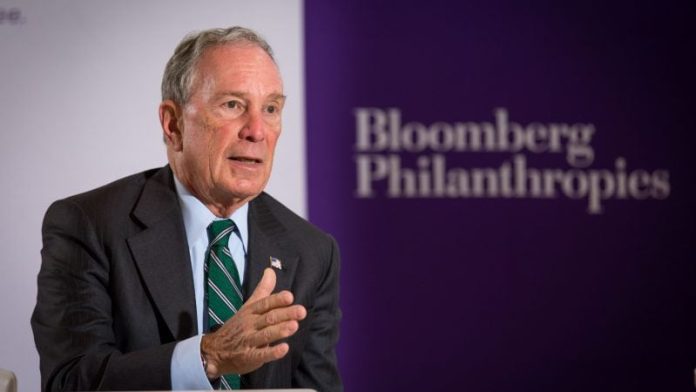Seven US cities have been recognised for their use of data to solve local issues and improve lives. Kansas City, Louisville, and Washington ranked highest of the seven. Arlington, Memphis, Philadelphia, and Scottsdale were also commended.
Bloomberg Philanthropies, the city-focused charity set up by Michael Bloomberg, former mayor of New York City, has rated and ranked how well US cities are managed by measuring the extent to which their city leaders incorporate data and evidence in their decision-making.
Its 2019 What Works Cities certification claims a to promote a national standard of excellence in city governance. Cities are evaluated on various factors related to their usage of data, including the role of staff to get departments using data, the role of data in the award of city contracts, and whether key datasets are open to the public.
The programme launched in April 2017 to recognise the progress with data of US cities with populations of over 30,000. Cities are awarded silver, gold, or platinum certifications, depending on the sophistication of their data usages.
Nearly 200 cities have completed assessments to have their practices benchmarked against the national standard, said Bloomberg Philanthropies.
No city achieved platinum status in 2019. Three cities (Kansas City, Louisville, and Washington) achieved certification at the gold level. Each of these achieved the silver level in 2018, as well. Four cities (Arlington, Memphis, Philadelphia, and Scottsdale) are newly certified and achieved the silver level.
Six other cities have achieved the grade in the past. They include Los Angeles, which achieved gold in 2018, and Boston, New Orleans, San Diego, San Francisco, and Seattle, all of which ranked silver in 2018.
Michael Bloomberg, founder of Bloomberg Philanthropies and former mayor of New York City, said: “Data helps city leaders understand problems and measure success, and it helps citizens hold government accountable for meeting public needs on all the big challenges we face – from promoting health and safety to fighting climate change.”
Simone Brody, executive director of What Works Cities, said: “These well-managed cities are better solving the problems facing their communities and addressing residents’ needs. They are stretching every dollar by using data to set priorities, budget effectively, and ensure investments are yielding desired results. They are also putting data at the core of their efforts to prepare for future challenges.”
Find below a review of each of the cities, taken from the What Works Cities programme.
Kansas City, Missouri
Mayor Sly James passed a law requiring the local government use data in decision-making. This ensures that data-driven progress will continue, even as the City prepares for a mayoral transition.
Louisville, Kentucky
Mayor Greg Fischer, powered by [the city’s] deep bench of data and innovation experts, built a platform that analyzes data to improve traffic conditions and road safety. The city has now opened up this technology so that it is free for any city to use
Washington, DC
Mayor Muriel Bowser is using [the city’s] nationally recognized Lab @ DC to improve service delivery on a number of critical programs, from its dockless bikeshare system to the delivery of Temporary Assistance for Needy Families.
Arlington, Texas
Mayor Jeff Williams is notable for making data accessible so that it can be shared with key stakeholders, including residents and the federal government. For example, the city’s ability to share data with the federal government opened up federal funding for the city’s innovative public transit ridesharing partnership.
Memphis, Tennessee
Mayor Jim Strickland has developed a Good Government Performance Dashboard that tracks a wide variety of metrics, including 911 response times, crime rates and police employment statistics. This approach has already improved services. For example, the city is now deploying SUVs with medical personnel for non-emergency 911 calls and saving its ambulances for medical emergencies. The city has also increased adoption rates for stray animals over the past five years, from 46% to 94%.
Philadelphia, Pennsylvania
Mayor Jim Kenney is now using data to make sure millions of dollars in city contracts deliver real value to the city’s residents. In May 2017, the city switched from awarding contracts based solely on the lowest bid so that they can award contracts based on “best-value” indicators, such as expertise, quality and experience. The city is now applying this approach to $25 million in food services contracts.
Scottsdale, Arizona
Mayor W.J. “Jim” Lane is using sophisticated data analysis to predict future challenges and address them ahead of time. For example, Scottsdale has used predictive analytics to conserve water in its underground aquifers, a crucial resource in the desert city.

